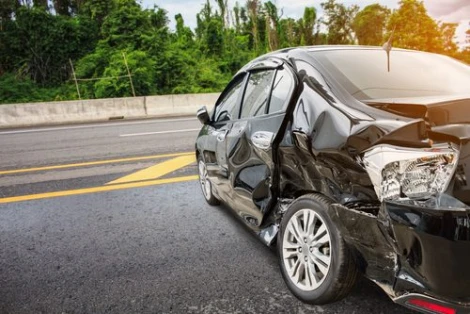
When people are involved in car crashes, it’s not uncommon for them to mistakenly believe they’re not hurt, only for serious pain to arise days after the accident. Why does this happen? It can be attributed to the hormone adrenaline (epinephrine), which is responsible for the body’s flight or fight response.
Car accidents are physically “exciting” events, but not in the way that a roller coaster or trip to a new place is exciting. They’re exciting in that they startle the body and place it in an instant state of stress. Car accidents are sudden and often traumatic, causing the body to flood the system with adrenaline – which increases the heart rate, prepares the body to run at superhuman speed, and masks pain.
Adrenaline Can Mask Pain for Long Periods
What we may not realize is that adrenaline can mask the pain of a car accident for hours, if not days after a crash. Sometimes when victims mistakenly believe they aren’t injured, they tell the at-fault driver or insurance company, “I’m not hurt, I’m fine” but days later, serious, debilitating pain can set in.
If you’re involved in a car crash, save all comments regarding injuries or pain until you’ve been checked out by a medical professional. If you tell the other driver or the insurance company that you’re uninjured and later discover that you are, the insurance company can argue that you’re being dishonest. In effect, they can try to devalue your claim because at first you claimed to be injury-free.
See a Doctor Within 72 Hours
We urge auto accident victims to see a doctor within 72 hours of a crash, even if you think you’re fine. A delay in receiving medical treatment can send the wrong message to the insurance company, and can compromise your health if you have a spinal cord injury or a concussion. It’s just not worth the risk.
See A Healthcare Provider Immediately If You Experience The Following After A Car Crash:
- Dizziness
- Confusion
- Vomiting
- Blurred vision
- Slurred speech
- Trouble concentrating
- Inability to wake up
- Unusual behavior
- Loss of movement
- Difficulty breathing
- Extreme back pain
- Difficulty walking or balancing
- A strangely positioned neck or back
- A headache that keeps getting worse
- Numbness or tingling in the arms or legs
If you experience any of the above symptoms after a car accident, you could have experienced trauma to your neck or head. Medical evaluation is the only way to be sure that all is well. In fact, it’s safer to err on the side of caution because serious head or spinal injuries aren’t always immediately obvious.
Related: Low Impact Car Accidents That Still Cause High-Level Injuries
Contact the Kennesaw car accident attorneys at Jones & Swanson for more information or to schedule your free case evaluation.










